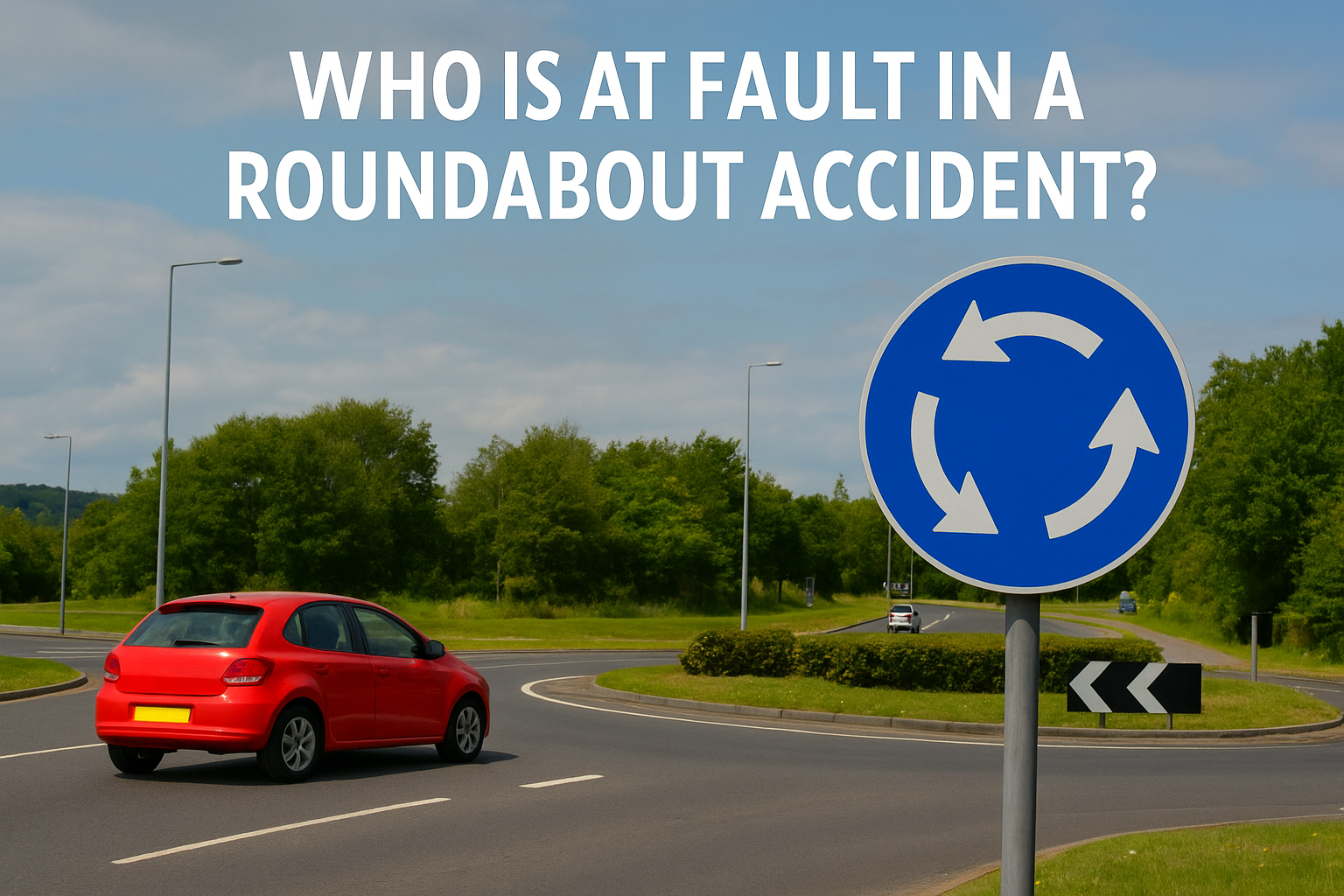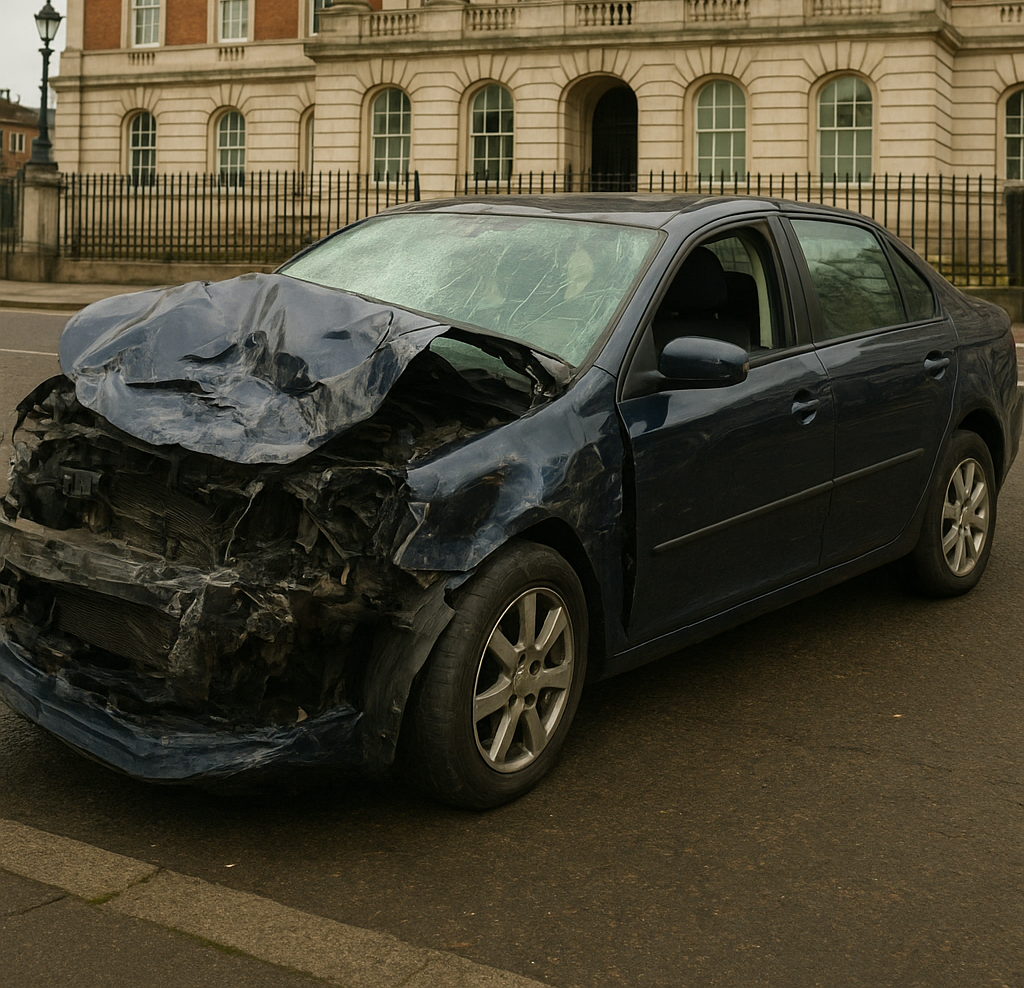Car accidents can be stressful, especially when those involved deny responsibility. Often, individuals think that determining fault is straightforward, but understanding who actually decides fault—and how to prove it—can be crucial to securing compensation for an accident that wasn’t your fault.
Accidents can cause lasting physical injuries, psychological trauma, and financial loss. When we take out a policy of car insurance, we agree to never admit fault at the scene of an accident. But what happens when there is a dispute between insurance companies or when versions of events conflict? It is common for parties to avoid admitting blame, but accidents happen daily across Northern Ireland. Your first step should always be to contact expert insurance and personal injury solicitors who can guide you through the process.
Who Determines Fault After a Car Accident?
The Role of the Police
While the police attend accident scenes and produce official reports, it’s important to understand that they do not determine legal liability. Their role includes:
- Documenting the accident scene and vehicle damage
- Recording witness statements
- Providing a neutral report of events
They are evidence gatherers. A police report—if one exists—is crucial evidence but cannot definitively assign fault. Insurance companies and the courts use this information alongside other evidence to assess liability.
Insurance Companies
Insurance companies are responsible for investigating liability and, even when the situation appears clear-cut, they may still look to obtain:
- Accident scene photos
- Vehicle damage reports
- CCTV or dashcam footage
- Police and medical reports
If you are making a claim against a third party, their insurer will, where possible, look to dispute liability or place fault on you or another party involved in the accident.
Road Traffic Accident Solicitors
A specialist RTA solicitor is essential in all car accident cases—but even more so when fault is disputed. They can:
- Advise on which evidence strengthens your claim
- Collect and organise documentation for insurers and the courts
- Explain likely outcomes and individual judges’ attitudes
- Represent you in negotiations and in court
The Court’s Role in Contested Claims
If liability is strongly contested and no settlement can be reached, the case may proceed to a formal court hearing where a judge will make the final decision.
During the hearing, the judge will:
- Listen to all evidence, including driver testimony, witness accounts, and motor assessor reports
- Assess the credibility of those giving evidence
- Hear arguments from solicitors and barristers
- Use their experience to reach an impartial decision based on the facts
This ensures liability is determined fairly and transparently.
How to Prove You Were Not at Fault
To strengthen your claim:
- Contact a solicitor immediately to avoid missing critical deadlines.
- Gather evidence such as photos, CCTV footage, medical records, and witness statements.
- Report the accident to the police if necessary to document the incident.
- Notify your own insurance company to provide evidence and clarify liability.
Make a Personal Injury Claim with Lacey Solicitors
At Lacey Solicitors, we specialise in serious personal injury claims. We understand the impact of accidents and provide expert legal support for you and your family.
Our insurance and personal injury solicitors, based in Belfast and Dublin, treat every enquiry with confidentiality and empathy.
Why Choose Lacey Solicitors?
- Client-focused support: Your needs come first, and we can visit you at home or in a care facility if needed.
- Comprehensive assistance: Access expert witnesses, rehabilitation support, and guidance throughout litigation.
- Specialist knowledge: Our solicitors have extensive experience handling personal injury claims.
- Transparent fees: We explain all costs upfront and do not operate “no-win, no-fee” arrangements, which are prohibited in Northern Ireland. Learn more here: No Win, No Fee Solicitors in Northern Ireland. We also discuss funding options, including Legal Aid where eligible.
Eligibility for Personal Injury Compensation
You may be eligible if:
- You suffered physical or psychological injury due to someone else’s negligence
- The accident occurred within the last three years
- Evidence exists to support your claim
How to Make a Personal Injury Claim
- Contact Lacey Solicitors promptly to discuss your case.
- Provide key information about the accident.
- We review evidence to assess the viability of your claim.
- We collect medical records, witness statements, and assess all legal time limits.
- If your claim is strong, we represent you throughout the legal process and support you at every stage.
Contact Lacey Solicitors Today
If you’ve been involved in a car accident or personal injury incident, email info@laceysolicitors.com. Our team provides expert, compassionate legal guidance to help you secure the compensation you deserve.

















